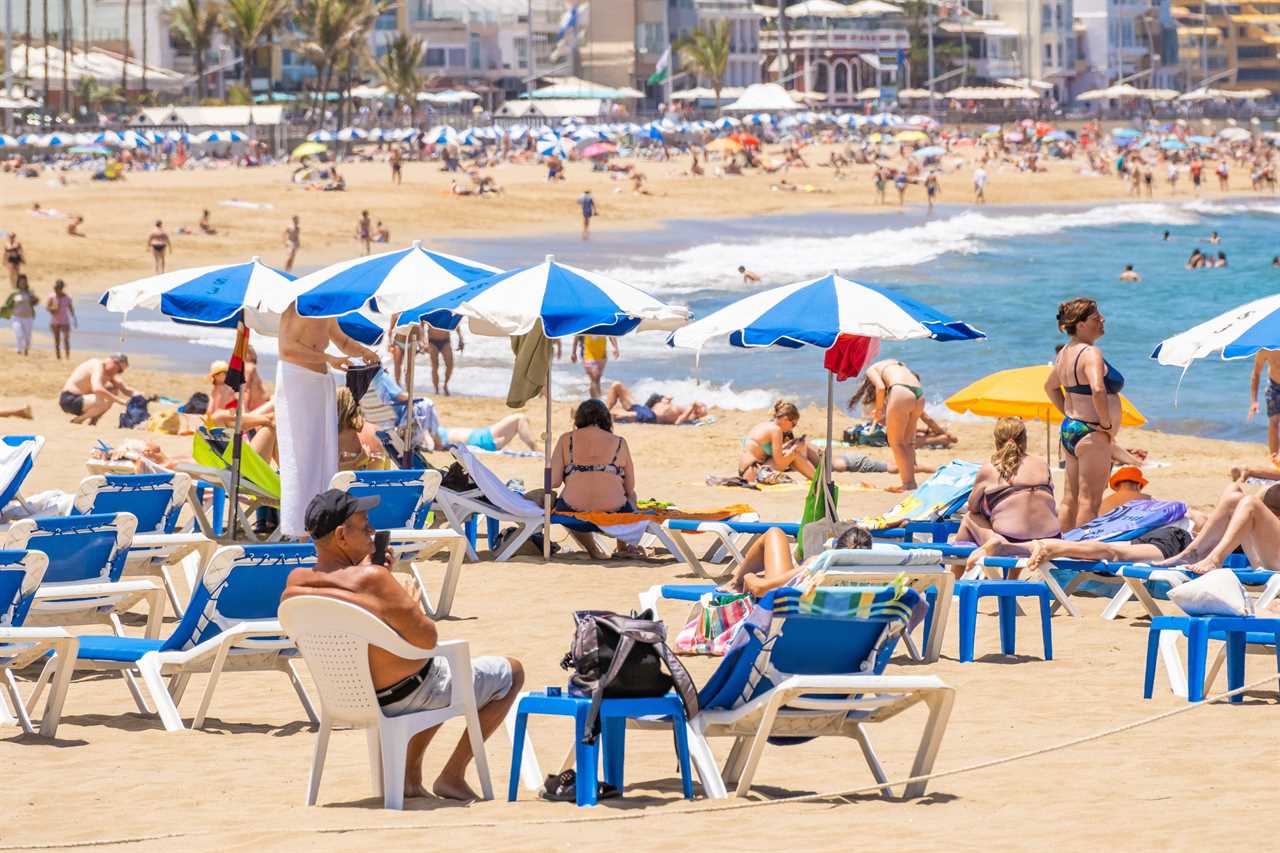SUMMER holiday hotspots are seeing a new wave of Covid as tourists are warned the virus is “still taking lives”.
Cyprus, France, Greece and Portugal are among the nations with the highest incidence rates.

The World Health Organisation has said BA.4 and BA.5 Omicron subvariants are driving the new wave.
Both Covid strains, which are more mild than those that came before, share a mutation linked to greater transmissibility.
More concerning is that there are early indications that previous Omicron infection does not protect against BA.4 and BA.5.
In its weekly report, published last Wednesday, the WHO said cases in Europe had risen by 33 per cent in one week, the second highest after Eastern Mediterranean (47 per cent).
At the country level, Spain reported infections increasing by five times in the space of a week.
Italy’s case load grew by 61 per cent, France’s by 37 per cent and Germany’s by 23 per cent.
The 53 countries in the WHO European region are currently registering just under 500,000 cases daily, up from around 150,000 at the end of May.
Infections over Europe have been growing for three consecutive weeks, however deaths are still low.
WHO Europe regional director Hans Kluge said the virus will continue to spread over the summer – as people take their summer holidays.
“As countries across the European region have lifted the social measures that were previously in place, the virus will transmit at high levels over the summer,” Kluge told AFP.
“This virus won’t go away just because countries stop looking for it. It’s still spreading, it’s still changing, and it’s still taking lives.
“We hope that the strong vaccine programmes most member states have implemented together with prior infection will mean that we avoid the more severe consequences that we saw earlier in the pandemic.
“However, our recommendations remain.”
The WHO urged people experiencing respiratory symptoms to isolate, as legal requirements are no longer in place.
The agency urged people to stay up to date with their vaccinations and wear masks in crowded places.
The Covid picture is also worsening in the UK, as officials have warned hospital admissions could surpass those of the first Omicron wave.
The Office for National Statistics estimates one in every 30 Brits is now infected.
It said on Friday Covid infections in the UK had jumped by more than half a million in a week (32 per cent).
A total of 2.3 million people across the UK tested positive last week compared with 1.7 million a week earlier.
This compares to the record of 4.9 million at the peak of the Omicron BA.2 wave at the end of March.
The UK Health Security Agency (UKHSA) chief executive Dame Jenny Harries said that people should “go about their normal lives but in that precautionary way”.
The UKHSA is also closely watching the behaviour of a new variant, the Omicron BA.2.75.
It has concerned experts who have warned that it is one that is “worth keeping an eye on”.






